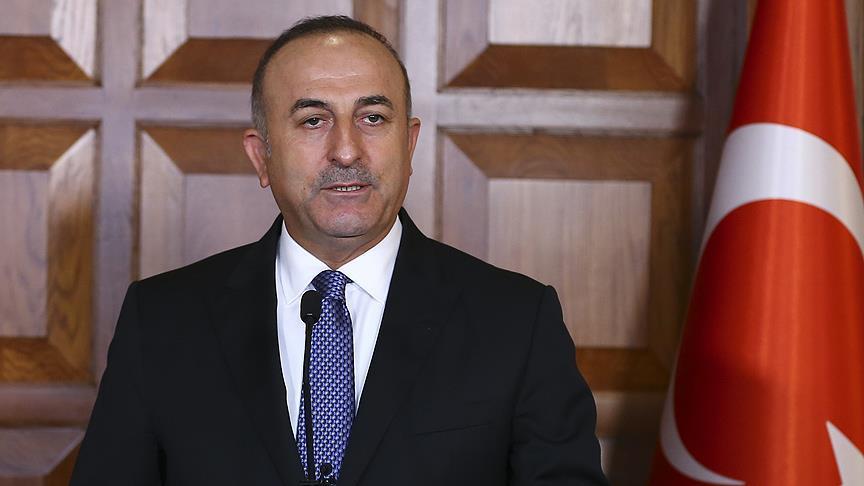Idlib attack is 'crime against humanity': Turkish FM
Foreign Minister Mevlut Cavusoglu says 'red line' of chemical warfare had been crossed before

Ankara
By Ayse Yildiz, Leyla Ataman
ISPARTA, Turkey
Foreign Minister Mevlut Cavusoglu has described a deadly chemical attack in northern Syria as “a crime against humanity”.
Speaking in Turkey's western province of Isparta on Tuesday, Cavusoglu said women and children were among the dead in Syria's northwestern Idlib province.
The use of chlorine gas has been blamed on the Syrian regime.
"This is a crime against humanity and there should be a punishment for this. But I am sure that the Western world which tries to teach human rights but showed impassivity when the red line was crossed before will try to cover this up again too," Cavusoglu said.
He said it was not the first such chemical attack by the Syrian regime.
"Chemical weapons were a red line for the whole world, but it became routine... After the truce, violations were occasionally occurring, but this is obviously a very serious violation," he added.
A cease-fire brokered by Turkey and Russia came into effect in Syria late last year.
Last year, a UN-appointed investigation panel found that chemical weapons had been used by regime forces and opposition fighters in 2014 and 2015. However, no actionable steps were taken.
Kirkuk referendum
Cavusoglu also criticized a decision to hold a referendum on the future of the Iraqi city of Kirkuk.
While Baghdad says Kirkuk is administratively dependent on Iraq’s central government, the Patriotic Union of Kurdistan -- an influential political party in the region -- wants to see the city incorporated into northern Iraq’s semi-autonomous Kurdish region.
The Kirkuk Provincial Council on Tuesday voted to hold a referendum.
In a session boycotted by Arab and Turkmen members, the council overwhelmingly chose to conduct the referendum on uniting the city with northern Iraq’s Kurdish area.
"They need to know that the Kirkuk Turkmen are not alone, and will not be alone. We will not allow this to happen,” Cavusoglu said, describing the move as “not good for the future of Iraq and the regional [Kurdish] government”.
During the 2003 U.S.-led invasion of Iraq, Kurdish Peshmerga forces seized Kirkuk, prompting an influx of Kurds into the city.
Kirkuk’s population is mainly composed of Arab, Turkmen and Kurdish inhabitants.
Anadolu Agency website contains only a portion of the news stories offered to subscribers in the AA News Broadcasting System (HAS), and in summarized form. Please contact us for subscription options.







